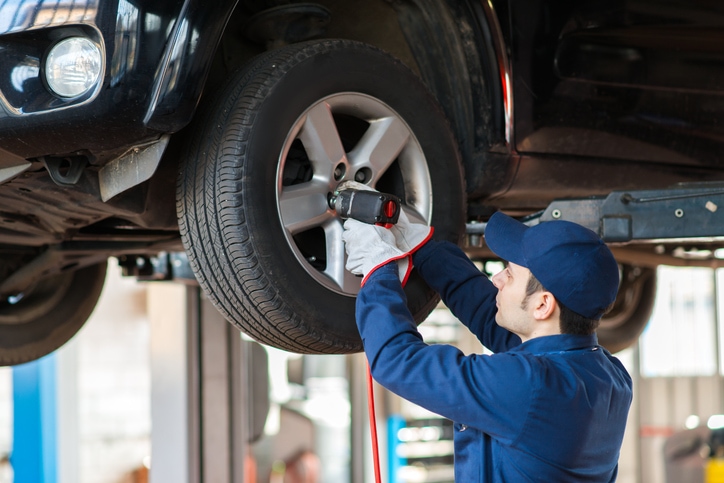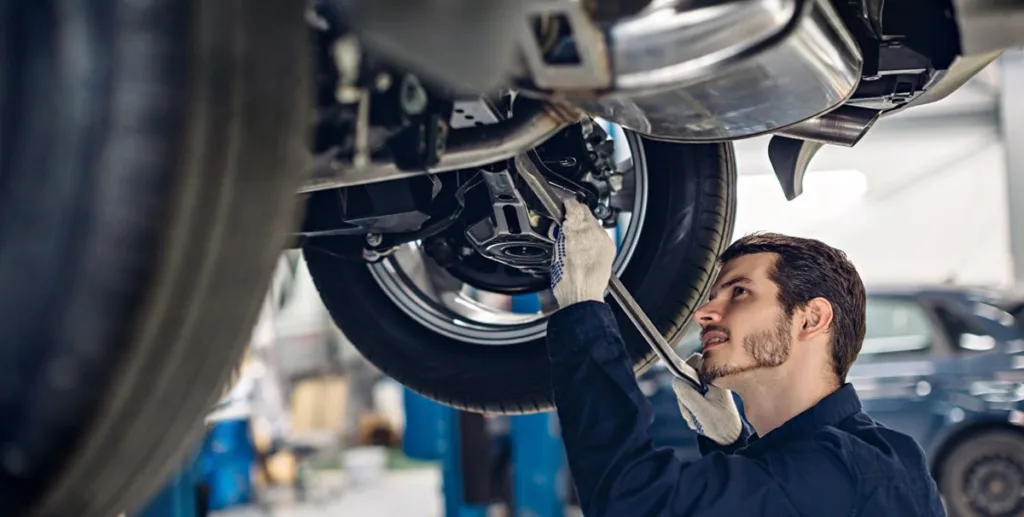All Categories
Featured

The brakes on your vehicle are vital for ensuring your safety and security and the security of others when traveling. Over time, however, brake elements can wear or become harmed, affecting their performance. Being aware of the indicators that indicate your brakes need fixing can help you address prospective issues early, preventing expensive repair services and guaranteeing your vehicle's safety and security. In this blog post, we'll explore the most common warning signs that your brakes require interest and what steps to take when you observe them.
- Uncommon Noises While Braking. Among the first indicators that your lorry's brakes need focus is the presence of weird sounds when applying the brakes. Squealing, squealing, or grinding sounds commonly indicate that the brake pads are worn down or that there is debris caught in the braking system. A screeching noise usually happens when the wear indicators on the pads contact the blades, signaling that it's time for a replacement.
Just How to Address It: If you hear screeching or squealing, it's time to have your brake pads examined. Depending upon the extent of the wear, the pads may need to be replaced. Disregarding this issue can lead to further damages to your rotors.
- Grinding Noises. If your auto makes a grinding sound when you use the brakes, this is a much more significant concern. Grinding noises take place when the brake pads are entirely used down, and the metal elements of the pads are massaging against the metal rotors. This can trigger considerable damage to the blades, bring about expensive repair services.
Just How to Address It: Stop driving the lorry and have it inspected quickly. The brake pads will certainly need to be replaced, and the rotors must be inspected for damage or wear. You might need to change the rotors if they've been drastically harmed.
- Vibration or Pulsation in the Brake Pedal. When you push the brake pedal, it must feel solid and receptive. This may suggest that your blades are unequal or deformed if you really feel vibrations or pulsations with the pedal. Distorted blades cause unequal contact in between the pads and the blades, causing a jerky stopping experience.

How to Resolve It: Have your vehicle's rotors checked for warping. Depending upon the extent, the blades may need to be resurfaced or replaced to recover smooth stopping performance.
- Squishy or soft Brake Pedal. This can signal a problem with your brake fluid or air in the brake lines if the brake pedal feels soft or squishy when you push it. A drop in brake liquid degrees can take place if there is a leak, or air can go into the lines if there's a mistake in the brake system.
Exactly How to Address It: Examine the brake fluid degree and leading it off if needed. If the liquid is reduced or there is air in the lines, an auto mechanic will certainly require to bleed the brake lines to eliminate the air and recover appropriate braking feature.
- Pulling away When Braking. It could be an indication that there is a problem with your brake calipers, pads, or suspension if your car draws to one side when you use the brakes. Unequal braking can make it tougher to quit the vehicle and may indicate that the brake system is not working effectively on one side.
Exactly How to Address It: Have your vehicle examined by an expert to determine whether a brake caliper, blades, or various other components are causing the drawing. The problem could also come from suspension misalignment or other mechanical troubles, which will certainly require to be attended to immediately.
- Control Panel Caution Light. When there is a problem with the brake system, many contemporary vehicles are equipped with a dashboard light that indicates. This light could come on for various factors, such as low brake fluid, worn-out brake pads, or a concern with the anti-lock braking system (ABDOMINAL)
Exactly How to Resolve It: If the brake caution light shows up, do not ignore it. Consult your vehicle's manual to understand the cause, but it's a good idea to take your vehicle to an auto mechanic for an evaluation and diagnostics.
- Lowered Braking Efficiency. If you notice that your auto is taking much longer to stop than normal, or if the stopping response really feels weak than normal, this might be an indication that the brake pads, rotors, or fluid need attention. Postponed or minimized braking can raise the threat of accidents, so it is essential to have it inspected as quickly as feasible.
Exactly How to Address It: If your brakes are not doing as well as they utilized to, get your automobile examined by an expert mechanic. It's crucial to deal with the issue immediately to avoid further safety and security problems.
Conclusion. Regular brake examinations and timely repairs are vital to keeping your lorry's performance and making sure security on the road. Maintaining up with normal brake upkeep will certainly help extend the life of your brake system and guarantee you drive with confidence.
Latest Posts
Learn How to Reduce Expenses on Car Maintenance with Montclare Auto Repair’s Exclusive Deals
Published May 27, 25
1 min read
Specialist Commercial Roof Solutions in North Platte, Nebraska
Published May 24, 25
2 min read
Dependable Expenses Door Solutions for Residences and Services
Published May 23, 25
1 min read
More
Latest Posts
Learn How to Reduce Expenses on Car Maintenance with Montclare Auto Repair’s Exclusive Deals
Published May 27, 25
1 min read
Specialist Commercial Roof Solutions in North Platte, Nebraska
Published May 24, 25
2 min read
Dependable Expenses Door Solutions for Residences and Services
Published May 23, 25
1 min read